Encouraging healthy eating habits in children is important for their growth and development. Here are ten nutrient-rich foods that can contribute to
Encouraging healthy eating habits in children is important for their growth and development. Here are ten nutrient-rich foods that can contribute to a well-balanced diet for kids:
Fruits
Fruits are packed with essential vitamins, minerals, and dietary fiber. Encourage children to eat a variety of fruits, such as berries, bananas, oranges, apples, and grapes.
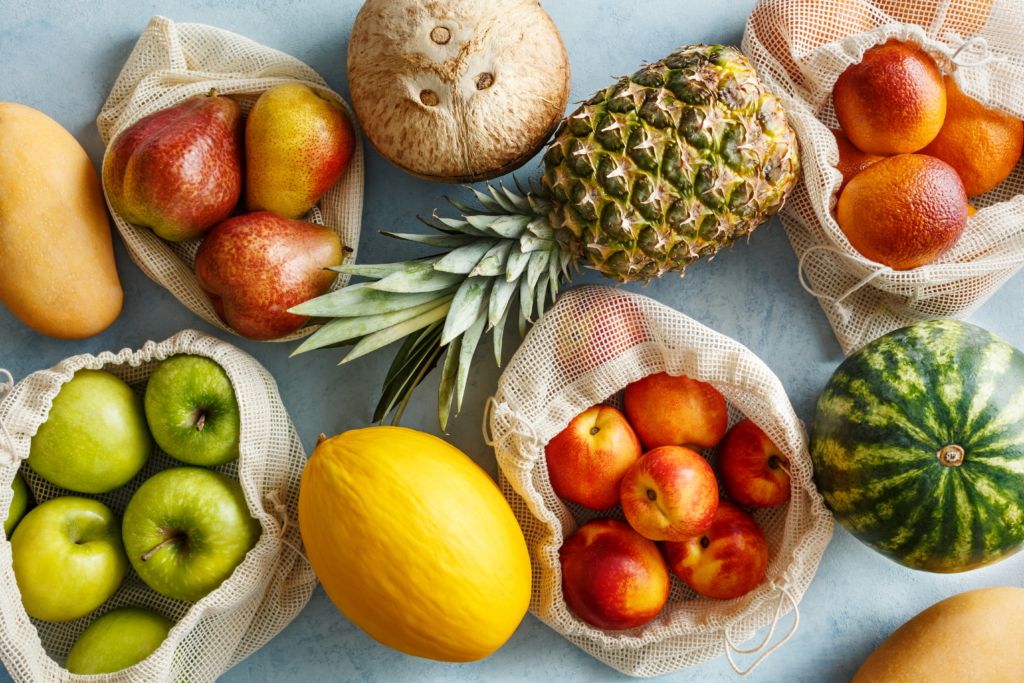
Including fruits in a child’s diet is a great way to boost their intake of vitamins, minerals and antioxidants. Here are some of the healthiest fruits for kids:
Apples: A good source of fiber, vitamin C, and antioxidants, apples can help support healthy digestion and overall health.
Bananas: Rich in potassium, vitamin B6, and vitamin C, bananas are a great energy booster and can help support healthy brain development.
Oranges: Packed with vitamin C, folate, and fiber, oranges are great for immune system support and can help reduce the risk of chronic conditions such as heart disease.
Kiwis: High in vitamin C, vitamin K, and antioxidants, kiwis can help support healthy skin, digestion, and immune function.
Blueberries: Low in calories and high in vitamins and antioxidants, blueberries are excellent for promoting healthy brain function and reducing the risk of chronic diseases.
Vegetables
Vegetables provide important nutrients and antioxidants. Include a range of vegetables in your child’s diet, such as broccoli, carrots, spinach, sweet potatoes, and bell peppers.
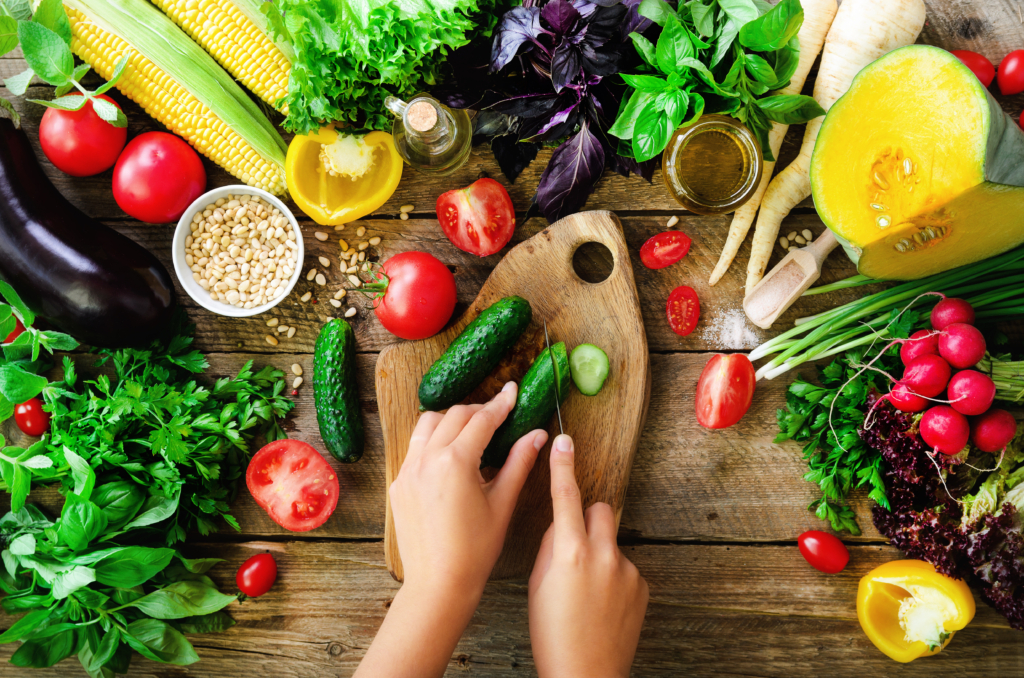
Vegetables are an essential part of a healthy diet, providing vital nutrients including vitamins, minerals, and fiber. Here are five of the healthiest vegetables:
Spinach: Packed with vitamins A, C, and K, as well as iron and calcium, spinach is a superfood that can support healthy bones, skin, and eyesight.
Broccoli: This green vegetable is high in fiber, vitamin C, vitamin K, iron and potassium. It can also boost immune system function.
Kale: Another leafy green superfood, kale is a fantastic source of vitamins A, C, and K, as well as calcium and iron. It can also help regulate digestion.
Sweet potatoes: Rich in beta-carotene, which is converted into vitamin A in the body, sweet potatoes are an excellent source of fiber, potassium, and vitamins B6 and C.
Brussels sprouts: These little green vegetables are a great source of vitamin C and vitamin K. They also contain fiber, folate, and antioxidants that can support overall health.
Whole grains
Whole grains offer fiber, vitamins, and minerals. Opt for whole-grain bread, brown rice, oatmeal, quinoa, and whole-grain pasta instead of refined grains.
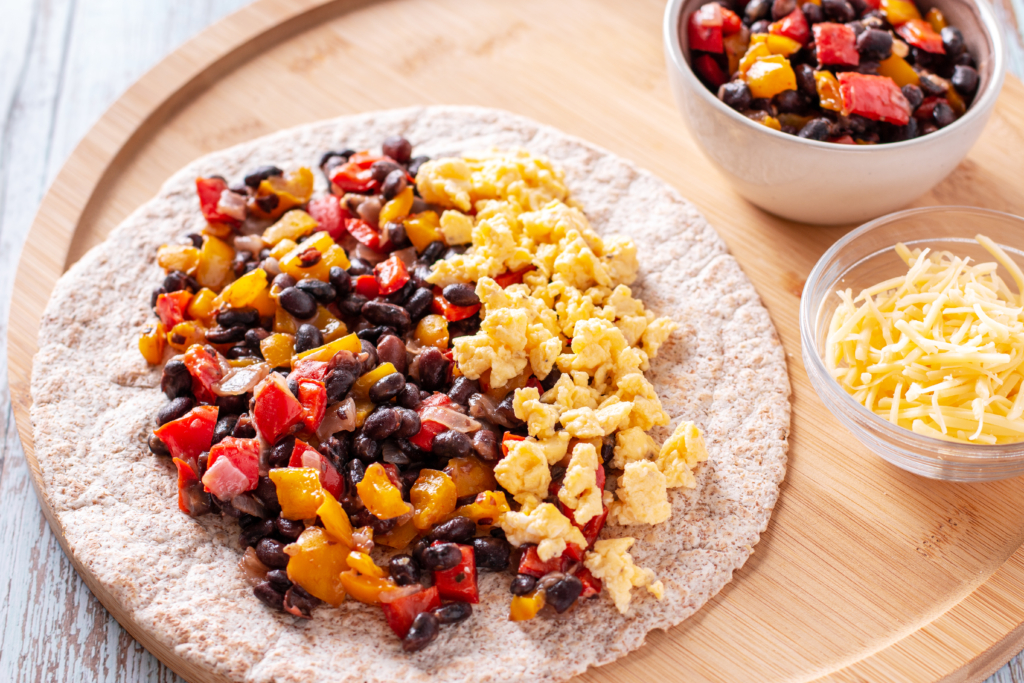
Whole grains are an important part of a healthy diet for kids. They offer fiber, vitamins, and minerals. Here are some whole grain foods that kids may enjoy:
- Whole grain bread
- Brown rice
- Whole grain pasta
- Quinoa
- Oatmeal
- Whole grain cereal
It’s a good idea to choose whole-grain foods over refined grain foods whenever possible, as they offer more nutrients and fiber. Remember, it’s important to consider your child’s individual dietary needs and any allergies or restrictions they may have. Consulting with a healthcare professional or a registered dietitian can provide personalized advice for your child’s specific needs.
Lean Proteins
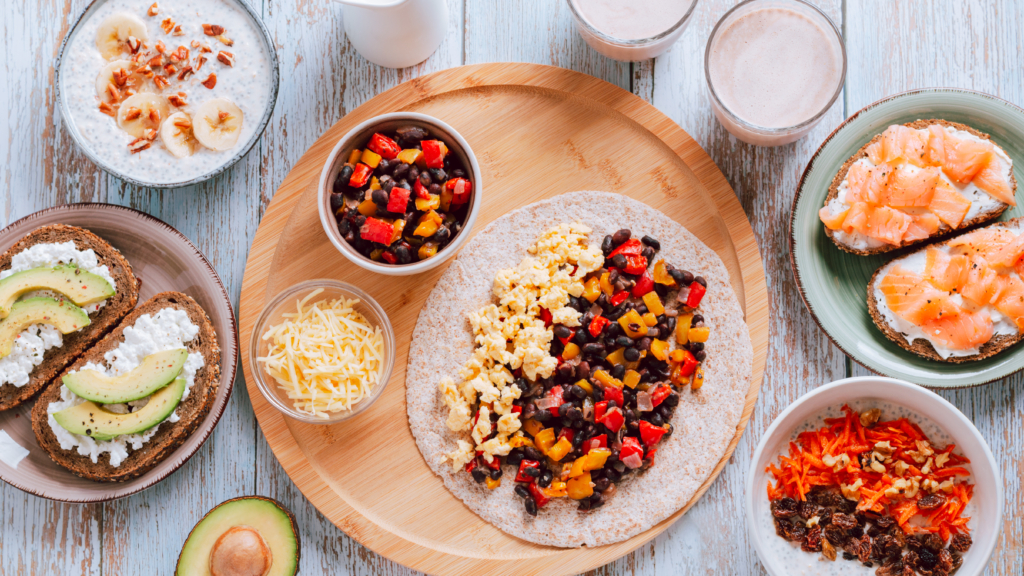
Proteins are crucial for growth and development. Include lean sources like skinless chicken or turkey, fish, eggs, beans, lentils, tofu, and low-fat dairy products like yogurt and cottage cheese.
Dairy Products
Calcium is essential for healthy bones and teeth. Incorporate low-fat or fat-free dairy products like milk, cheese, and yogurt into your child’s diet.
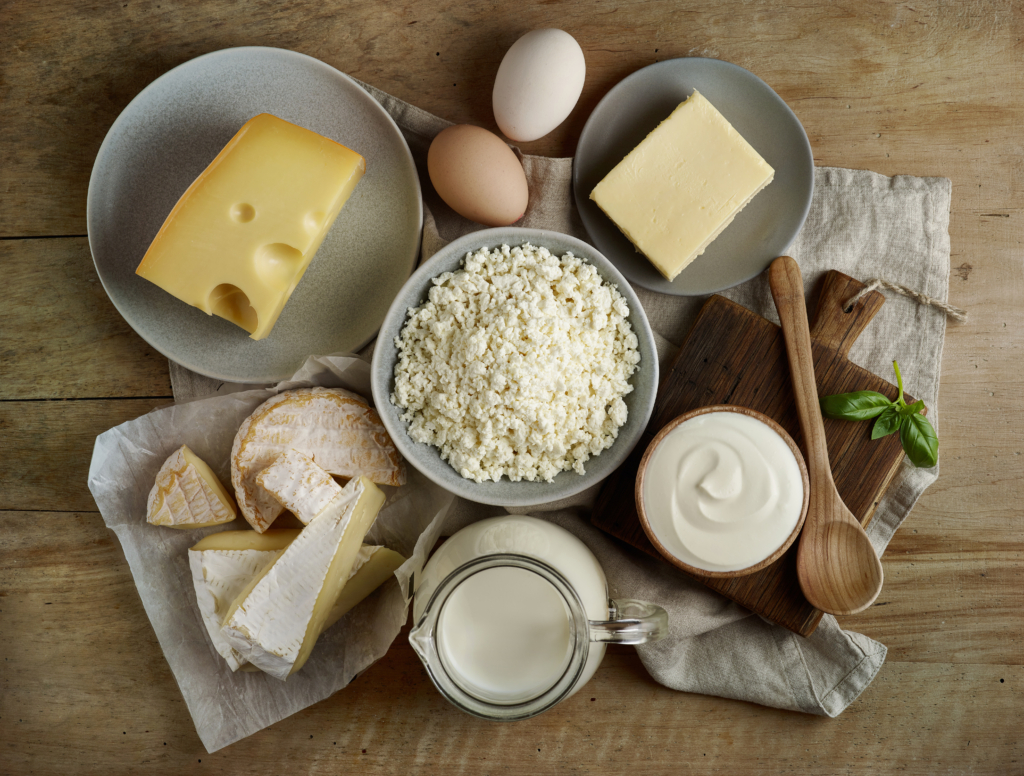
Incorporating low-fat or fat-free dairy products into your child’s diet can help ensure that they receive the calcium they need for healthy bones and teeth. Milk, cheese, and yogurt are all good options. For children who are lactose intolerant or have a milk allergy, there are non-dairy alternatives like soy milk, almond milk, and rice milk that can be fortified with calcium. However, it’s important to check the ingredient list on these products, as some may have added sugars, and not all of them are appropriate for young children. As a general rule, it’s a good idea to consult with a healthcare professional or a registered dietitian for personalized advice, particularly if your child has any allergies or restrictions.
Nuts and Seeds
These are excellent sources of healthy fats, protein, and essential nutrients. Offer almonds, walnuts, chia seeds, flaxseeds, or pumpkin seeds in moderation to kids above the age of two to minimize choking hazards.
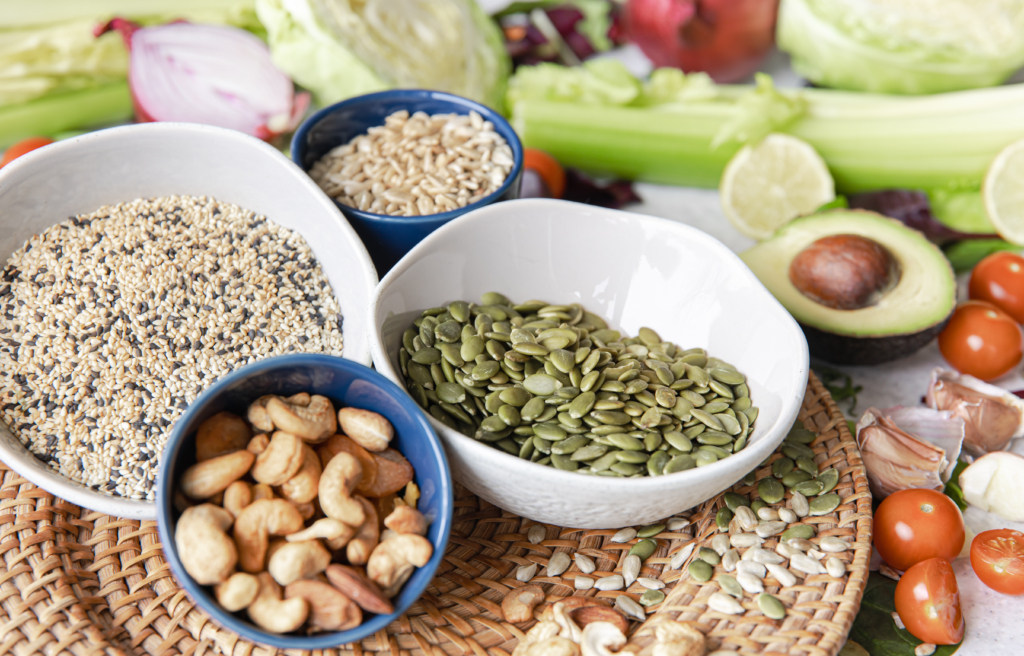
Nuts and Seeds are excellent sources of healthy fats, protein, and essential nutrients, but it’s important to offer them in moderation to kids above the age of two to minimize choking hazards. Some of the best nuts and seeds for kids include almonds, walnuts, chia seeds, flaxseeds, and pumpkin seeds. These can be easily incorporated into meals or snacks, such as a handful of almonds as a snack or chia seeds added to a smoothie. Remember to consider any allergies your child may have before including nuts and seeds in their diet, and consult with a healthcare professional or registered dietitian for personalized advice.
Legumes
Beans, lentils, and chickpeas are rich in fiber, protein, iron, and other essential nutrients. They can be incorporated into soups, stews, or added to salads.
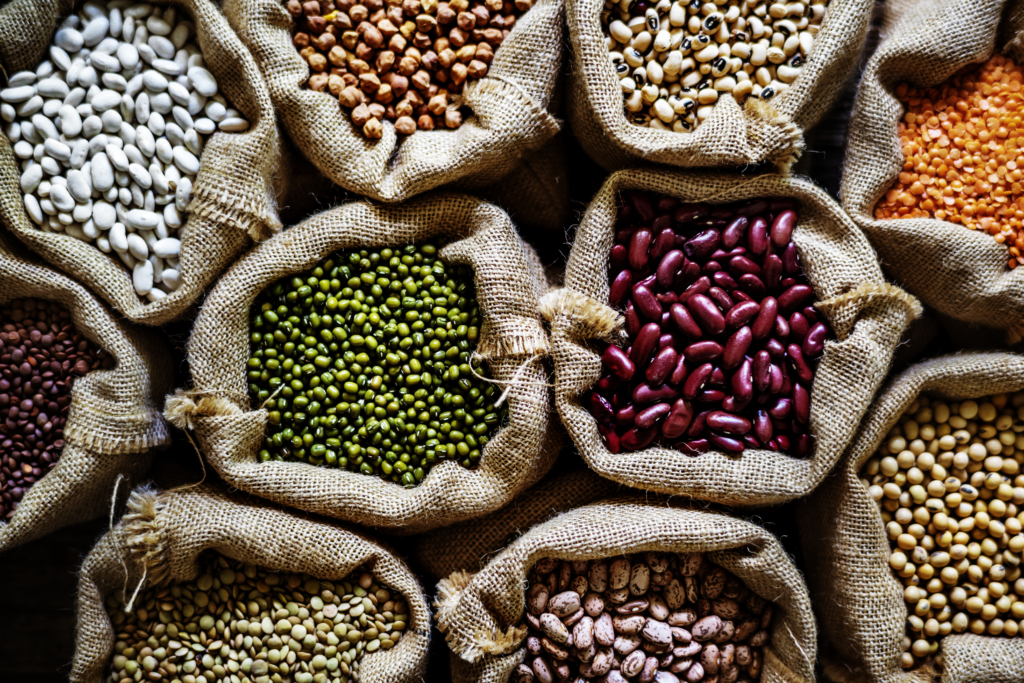
Legumes such as beans, lentils, and chickpeas are excellent sources of fiber, protein, iron, and other essential nutrients for kids. They can be easily incorporated into soups, stews, or added to salads. Here are some recipes that you may consider to include legumes in your child’s diet:
- Spicy Lentil Soup
- White Bean Chicken Chili
- Hummus with Whole Wheat Pita Bread
- Chickpea and Vegetable Salad
- Black Bean and Corn Quesadilla
Remember to start with small amounts of legumes to avoid digestive issues and gradually increase the quantity served to your child. It’s also important to consider your child’s individual dietary needs and any allergies or restrictions they may have. Consulting with a healthcare professional or a registered dietitian can provide personalized advice for your child’s specific needs.
Fish
Fatty fish, such as salmon, tuna, and sardines, are excellent sources of omega-3 fatty acids, which are essential for brain development. Aim for two servings of fish per week.
Eggs
Eggs are a nutrient-dense food, providing protein, vitamins, and minerals. They can be prepared in various ways, like boiled, scrambled, or used in omelets.
Water
While not food, water is crucial for hydration and overall health. Encourage your child to drink an adequate amount of water throughout the day and limit sugary drinks.
Remember, it’s important to consider your child’s individual dietary needs and any allergies or restrictions they may have. Consulting with a healthcare professional or a registered dietitian can provide personalized advice for your child’s specific needs.
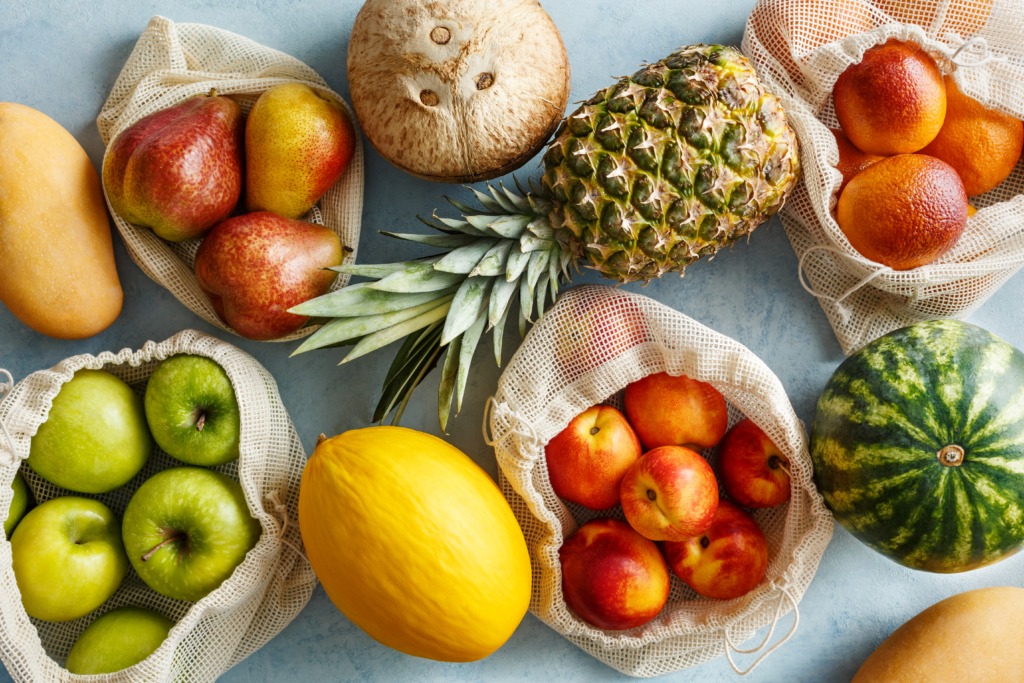
COMMENTS